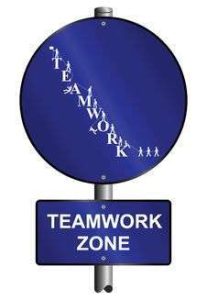
Dismissals List, Don’t Be On It, Be Flexible
I am stating the obvious when I say that employers in these troubling times are downsizing, dismissing staff, making more and more employees are redundant. Restructuring as companies come out of the pandemic has dramatically increased. Dismissals List, Don’t Be On It, Be Flexible is an important discussion. I’m encouraging being flexible, keep your job, don’t be dismissed. I’m not advocating employers take advantage of you. You have rights. Sometimes in life you have to give a bit to get a lot. Ultimately its up to you of course.
Dismissals are on the increase
Despite a lower than expected unemployment rate dismissals are on the increase. But the question a lot of employees ask me is, why are they letting me go? Why was i dismissed? I was a really good worker, I’ve been there the longest, my figure are the best, I made budget. Why not someone else. Companies over the last few months now have dismissed their troublesome employees, work cover, complainers, the ill, the injured, Coming back from maternity leave, the higher paid. So who’s next? Is my question.
What companies are now looking for is employees that are flexible,
Employers are looking for employees who fit in, fill in, not every time the employer asks for something to be done, the employee wants to look up their employment contact to see if its in it, before they decide to do it or not. Don’t have that attitude “I’ve done my eight hours for the day, I’m out of here”. Dismissal for some is only a phone call or email away, we see it all the time.
However what’s a reasonable request to one employee is not reasonable to another. Presently I think too many employees are resigning, without thinking of the ramifications through of their actions. How long will I really be out of work, its tough out there at the moment if you’re in the job market. What’s my financial situation, family situation, I’m going for loan, I have to pay a loan. Look past the present day, look at the bigger picture, what’s really in your best interest.

General protections application not involving dismissal
An option is to take your dispute to the Fair work Commission as a General protections application not involving dismissals, or a anti bullying complaint. Be aware you cannot just go to the Fair work Commission because you don’t agree with what your employer is doing, you must have grounds under the FWC Act. (check with us)
There is no doubt the pendulum has swung to the employer, but you still have rights, you don’t have to be trampled on. The key is to some how find middle ground, your happy with your job and pay. The employer is satisfied with what they are achieving with your labor, having stated that, its not that easy.
It will be interesting with the lockdowns finishing and the end of job keeper, that there will be employees who will refuse to return to work. Arguing continued health concerns, equally there will be many cases employees will face coming back to different position from which they had left previously. The effects of the pandemic on the economy means nothing will be same again, the residual effects will last for years.
Change your mindset towards being flexible (avoid that dismissals list)
Think about being more flexible, fit in so you keep your job, not being in the next lot of redundancies or unfairly dismissed for some dodgy reason. Don’t resign, call us, get advice, you are entitled to excise your workplace rights. Not be subject to adverse action, discrimination, being bullied, as a result.
There is no doubt employers want more output for their labor dollar, particularly now that labor cost is increasing as inflation rises. It’s certainly a fine balance in these difficult times. Again because of increasing labor cost many employers want more for more work done for the same hour, (or push, crib and get it done for free). “Oh, can you just take it home and finish it off”. “Can you work through your lunch break”. “Can you come in a bit early”. The list is endless.

As A Guide Consider The Following: Look at these turbulent times as a opportunity.
New adaptable work arrangements offer numerous benefits to both employers and employees. Such benefits include:
- Assisting in recruiting efforts.
- Enhancing worker morale.
- Managing employee attendance and reducing absenteeism.
- Improving retention of good workers.
- Boosting productivity.
- Creating a better work/life balance for workers.
- Minimizing harmful impact on global ecology. Certain flexible work arrangements can contribute to sustainability efforts by reducing carbon emissions and workplace “footprints” in terms of creation of new office buildings.
- Allowing for business continuity during emergency circumstances such as a weather disaster or pandemic.
- Travel. Conferencing technology like Skype would reduce travel expenses.
- Technology. Upgrading technology would help the company stay competitive and build Unilever’s brand as a best place to work. Costs would be offset by other savings.
- Real estate. Cubicles and offices would be converted to communal facilities, thereby reducing space requirements by 30 percent. Sites would be converted gradually as leases expired.
- Health. Onsite fitness facilities would increase employee satisfaction, help reduce illness and cut insurance costs.
- Work/life balance. Empowering workers would enhance work/life balance. Satisfaction ratings would rise, and recruitment would become easier.
- Sustainability. Reducing travel, office energy costs and paperwork would decrease the environmental footprint.
- Retention and engagement. Flexibility would enhance the employer value proposition, improving retention and supporting diversity
Challenges
- Keeping programs relevant to workers’ real needs/wants.
- Focusing on the unique needs of specific groups of workers without creating a second class of workers and without engaging in unlawful disparate treatment or disparate impact discrimination.
- Communicating broadly to achieve the benefits of flexible work arrangements.
- Exercising caution when eliminating a program that is not working or is no longer relevant to enough workers. Any loss of a benefit can impair morale, even if only a few workers had used it. Employers should consider phasing out unproductive programs over time.

Management has to improve (not just the employees)
In addition, managing the change from a traditional work environment to one with more flexible work arrangements can create or throw a spotlight on various managerial trouble spots, such as:
- Employees resistance to change.
- Control issues, especially in terms of supervision of work.
- Working as a team with far-flung members and highly variant schedules.
- Maintaining safety and security of personnel and data.
Working From Home
Telecommuting, also known as telework or remote work, involves the use of computers and telecommunications technology to overcome the constraints of location or time on work. In a global economy, physical location has become less important than efficiency of operations. Remote work may occur from home, a telework center, or on an airplane or bus. Don’t be resistant to this, Zoom, Mircosoft Teams, etc is here to stay.
An interesting side effect of the new way of remote work, working from home, is well if we don’t need staff in the office, why not have people work from home in India, the Philippines. As already indicated Australian labor cost is on the increase, will redundancies increase?, dismissals increase? I don’t think everybody has thought this through. Don’t need me the office, maybe they don’t need me at all. This will come clearer over the new few years.

Case study
In 2009, in the midst of the global financial crisis in the USA, the car companies (Ford, GM and Chrysler) were loosing billions and were quickly heading towards bankruptcy without US government assistance. Honda was the only car company in the USA that was making money. Why? American’s love their Fords and GM cars, the question was why could this Japanese company not just survive without government money but actually thrive and make a profit.
Honda when it arrived in the USA and a plant in Detroit, the headquarters of the car industry in the USA, we all know that. It didn’t make money. What Honda did was move their manufacturing plants to the southern states. This gave then access to cheap labor. But this was not the total answer. Right from the recruitment process it developed a process for looking for team based individuals that had this propensity to just want to help each other. Be be flexible on the production line, they didn’t needed to be asked, they just did it.
As the Ford and GM has mass lay offs, many experienced car workers applied for jobs at the relocated Hondas plants. Experienced as they were, many couldn’t get a job, because their mindset was wrong. Dispute desperately wanting a job, being prepared to relocate 1000’s kms away at their own expense there inherent mindset was not one of flexibly.
Be careful of this for yourself, make your self indispensable. Employers don’t dismiss or make redundant their best employees, nobody does.

Conclusion: Dismissals List, Don’t Be On It, Be Flexible
I hope this article has been of some assistance to you. I like people to keep their jobs. Or at least if moving out from the employer that you transaction to a new workplace seamlessly. I hope the article Dismissals List, Don’t Be On It, Be Flexible has been of some assistance in your decision making process.
Concerned about a pending dismissals, general protection issues, being relocated, having your duties adjusted or being transferred, give A Whole New Approach a call, we are here to help, its free, 1800 333 666.AWNA are not lawyers, but the nations leading workplace advisors. We one of the very few organisations that specialize in general protection applications. Probation period issues, employments rights, workers rights. We work in all states. NSW, VIC, Qld, SA, Tas, WA
Articles similar to “Dismissals List, Don’t Be On It, Be Flexible”
Working from home, is it worth it
Casuals and the workplace (be flexible)






